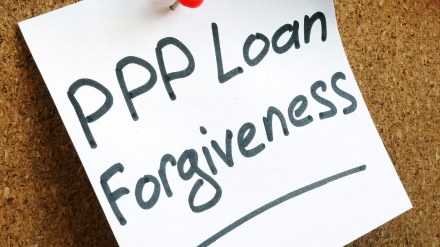Two key changes recently made by the US Small Business Administration (SBA) may ease burdens faced by many churches who seek forgiveness of their Paycheck Protection Program (PPP) loans.
In one move likely to interest smaller-sized churches, the SBA unveiled “a streamlined application portal” designed to allow borrowers with PPP loans of $150,000 or less “to apply for forgiveness directly through the SBA.” More than 600 lenders have already agreed to participate with SBA’s direct forgiveness program, which should initially help as many as 2.2 million eligible borrowers when the portal opened on Aug. 4, 2021.
Challenges with the loan forgiveness process
PPP is one of the most visible programs made possible through last year’s pandemic-related economic relief passed by the US Congress. Eligible employers, including nonprofits and churches, could receive funds to maintain their headcounts and compensation levels. Upon demonstrating that the funds were used to do so, borrowers could then apply to have their loans converted into nontaxable grants.
To date, nearly $800 billion in PPP loans have been distributed nationwide to 8.5 million recipients. In 2021 alone, the average loan measured $42,000, and 96 percent of the loans went to employers with 20 workers or fewer, the SBA said.
The forgiveness application process began in the summer of 2020. Problems immediately surfaced, though, as lenders scrambled to handle the process. By March of 2021, some of those problems persisted, either because some lenders still were not accepting forgiveness applications or borrowers struggled to document their eligibility for forgiveness, according to one survey of small businesses.
“The vast majority of businesses waiting for forgiveness have loans under $150,000,” said SBA Administrator Isabel Casillas Guzman in a prepared statement. “These entrepreneurs are busy running their businesses and are challenged by an overly complicated forgiveness process.”
Discontinued necessity questionnaires
In another move likely of interest to larger churches, the agency requested and received approval from the Office of Management and Budget (OMB) to discontinue requiring loan necessity questionnaire forms from borrowers of PPP loans of $2 million or more who seek forgiveness. SBA said “[a] significant number” of reviews conducted with submitted forgiveness applications showed “borrowers met the good faith certification requirement,” and the questionnaire forms were viewed by borrowers as “unnecessary and burdensome, among other things.”
In an updated FAQ by the US Department of the Treasury on July 29, 2021, the SBA noted—in Question 69—that the questionnaire requirement proved time-consuming, and the purposes it served could be achieved other ways. The SBA said it “believes audit resources will be more efficiently deployed across all loans if the loan necessity questionnaire is discontinued.”
It continued: “The loan necessity reviews, including the review of the borrower’s completed Loan Necessity Questionnaire, are lengthy and have caused delays beyond the 90-day statutory timeline for forgiveness, thus negatively impacting those borrowers that made their loan necessity certification in good faith.”
In an email alert sent to clients, CPAs Kaylyn Varnum and Mike Batts, both editorial advisors for Church Law & Tax, noted that affected borrowers should work with tax or legal counsel and their lenders if those lenders continue to incorrectly believe the completion of a loan necessity questionnaire is required.
More help
Church Law & Tax has closely followed the economic relief provided to churches and ministries throughout the COVID-19 pandemic. For more help, check out the following:





